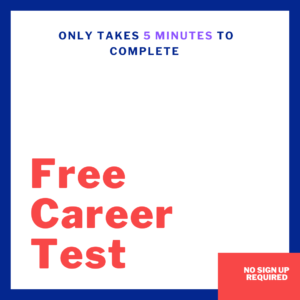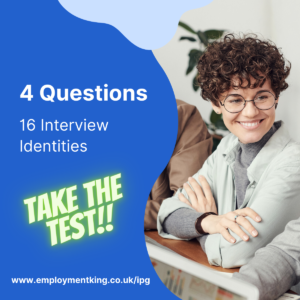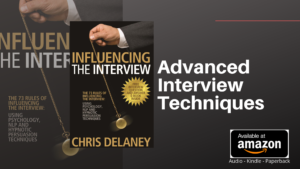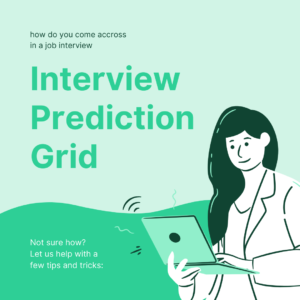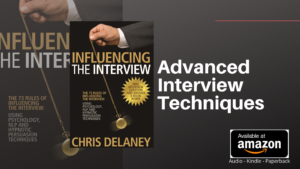Copywriting is becoming a more indemand skill.
The past 30 years have seen massive changes in the copywriting industry as consumer buying, technology, and globalisation have a direct impact on the advertising sector.
Previously, office-based copywriters would have collaborated directly with artists, often working in the same office, to create copy in printed newspapers and for advertisement boards.
Before too long, copywriters were being hired to create radio and TV ads. As the internet took the world by storm and a whole new sub-niche of marketing was created; SEO, PPC, and social media ads.
Advertising copywriters these days work remotely on slogans, catchphrases, headlines, as well as short copy for online ads, and long copy for TV commercials, newspaper adverts, press-releases and all kinds of written words copy.
Salary and qualifications
As a general rule of thumb, a skilled copywriter will receive a salary varying between £30-£50k. With some in-demand advertisers earning up to £90k.
From a job interview perspective, an applicant’s perceived level of experience can determine, not only the interview outcome but the salary negotiation outcome as well.
Employers are looking to hire experienced writers who understand the psychology of sales and persuasive writing.
Copywriters are often degree-level qualified but there are no required degree courses that an applicant must have – writing skills and interview techniques are the two essential must have to pass an advertising copywriter job interview.
On the other hand the following degrees are highly relevant for a writing career:
- creative advertising
- communication studies
- English
- journalism
- public relations
Job interview questions and answers for a copywriter
Interview questions will vary depending on the sub-niche the advertised role sits within, but there are some commonly asked questions that every advertising copywriter needs to prepare for.
The job interview will be book-ended by commonly asked job interview questions; Why did you leave your last job? What motivates you? Why do you want to work here? or Do you have any questions for me?
This article, therefore, will focus on job-specific questions that require high-scoring answers to ensure that the interviewee has any chance of a successful job interview outcome.
What is your process for creating copy?
For ‘process’ or ‘system’ job interview questions, the best bet is to simply list the industry recognised procedure:
- Client brief
- Idea generation
- Sample copy for review
- Main copy with updates
- Release the copy
To score high, answers need to be more detail – meat on the bone is required. As an example step 1 the client brief can be better worded by breaking down the process of the brief:
‘My first action, when I receive the client brief, is to research the company; their past copy, their values and vision, the target audience and the product the marketing campaign relates to, as this gives me a better understanding of the client.’
You could also discuss looking at the organisations competitors, liaising with the client to check your own interpretation of the brief and to establish a timeline.
By breaking each step down into specifics, the applicant can’t help but meet the criteria on the interview scorecard. Once met, the employer has to allocate the answer a high score.
Detailed answers can be long. What is required for lengthy answers is a slow pace answer, with links between each stage.
At the end of the answer give a quick summary to ensure that the interview panel have heard all 5 stages of the interview answer.
How do you prioritise work when managing multiple client accounts?
Working on multiple projects is the norm in the advertsing world.
Therefore, employers are looking for copywriters who can multitask. What the interviewer is looking for when they ask a time-management, work priority or high workload interview question, is the process you use to ensure quality work is produced in a timely manner.
To answer this question you can either quote time management models: the time management matrix.
Or, to give an example.
The example given should state:
- The number of projects you were working on
- The competing deadlines
- The duration and complexity of different tasks
- Your decision making process ie what did you prioritize and delegate
- The positive outcome
It is also good to reference the tools you utilise:
- Gantt Chart
- To-do list
- Any automation tools
- Reusing/editing old copy
- Calendar reminders
The goal here is to show organisation and effective decision making.
Do you have examples of copy from previous projects?
Generally speaking, when asked for an ‘example’ many interviewees will describe a previous successfully experience.
And so they should.
Examples do score high as, if they are done correctly, they will describe a previous situation that had a risk attached to it. This could be an advertisement project with a short deadline , a new market product or a gorilla marketing tactic, previously not used.
The danger, stated in the example, builds suspense.
The interview answer points come from the description of the actions the applicant took (which need to be specific stated) and the outcome of the example.
An additional, underused, trick that can be used to gain additional points is to bring physical evidence.
There is something about seeing and holding a piece of work that brings the quality of the work to life.
Preparing evidence also highlight the candidates organisation and preparation skills.
Evidence can include:
- A portfolio of work
- Examples of writing
- Data from past campaigns
- Client feedback

How do you ensure your copy is in another person’s voice?
One of the hardest, and most required, skills is having the ability to write in the clients voice.
Again, evidence sampling different ‘voices’ will show the employer that you possess this skill.
To answer this question, start with a confirmation statement: ‘all my work has a different tone to suit the voice of the client. This is a skill I excel in….’
A confirmation statement reassures the employer.
Next, explain the process you go through with the client to accommodate the tone, perspective, and overall voice of the copy to resonate with the product.
This explanation, along with physical evidence, is enough to help the interviewer see the benefits of hiring the applicant with this skill.

How do you prepare content for SEO or PPC?
Online advertsing is growing year upon year.
Social media ads are short, dynamic and engaging requiring a new style of copy. Some online copy, a press release or a blog post as an example, is written in a similar style as copy for a newspaper.
Clients may want pay-per-click ads or banners. Short marketing videos on YouTube and Instagram are becoming popular. In short, there are various styles of online marketing.
When asked about online marketing list the different styles and a summary of what is required, before delving deeper into your two approaches for SEO and PPC.
Start the interview answer by showing expertise:
‘I have been creating a high click-through copy for online PPC ads on YouTube, Facebook, Instagram, and more recently Linked-in for 8 years now…’
Detail your knowledge:
‘…I specialise in Facebook animation ads for the health sector. An example of this was (discuss best performing ad)...’
Link both SEO and PPC:
‘…I also have worked on a high number of SEO campaigns. You may have heard of (add a well-known campaign you led on) I was responsible for (discuss your part in the project). The campaign was a success (add data and stats). ‘















